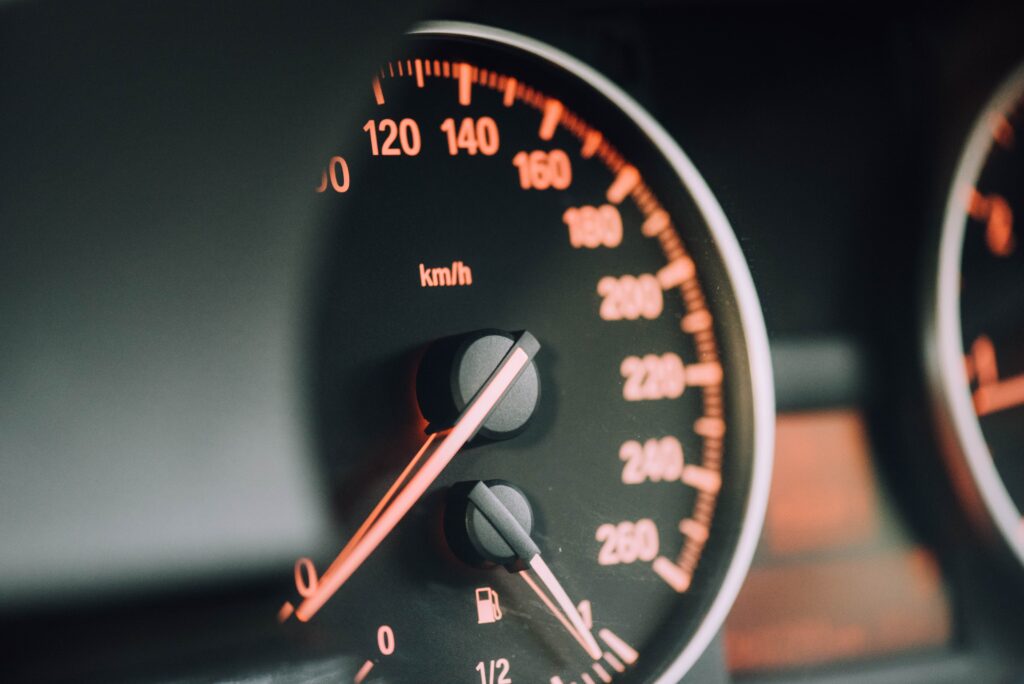Picture this: you’re cruising down the open road, wind in your hair, radio playing your favorite tunes. Your car, the epitome of sleek and powerful engineering, glides effortlessly through the asphalt. But beyond the purr of the engine and the gleam of the paint job, there’s an unsung hero silently working to keep your joy ride as smooth as possible – the exhaust system. You may not give it much thought, but this crucial component deserves some attention. In this article, we will explore the fascinating question: Does my car’s age affect how frequently I need to maintain its exhaust system?
We all know that with age comes wisdom, but what about wear and tear? As your beloved vehicle gracefully ages, the exhaust system may demand a little more TLC. Join us as we delve into the depths of exhaust maintenance and uncover the secrets behind this automotive enigma. From the science behind exhaust system deterioration to practical tips on prolonging its lifespan, we’ve got you covered. So, fasten your seatbelt and get ready for an illuminating journey into the world of automotive maintenance. Your car will thank you, and you’ll be equipped with the knowledge to keep your sleek companion on the road for years to come.
Factors that Affect Exhaust System Maintenance Frequency
Maintaining your car’s exhaust system is vital for its performance, efficiency, and overall safety. Several factors influence how often you should schedule maintenance for your exhaust system. By understanding these factors, you can ensure that your exhaust system receives the proper care and attention it needs to function optimally.
Quality and Design of the Exhaust System
The quality and design of your exhaust system play a significant role in determining its maintenance frequency. An exhaust system made from high-quality materials, such as stainless steel, is generally more durable and resistant to corrosion. Additionally, some manufacturers offer warranty coverage for their exhaust systems, which can provide added peace of mind for maintenance costs.

Driving Conditions
Your driving conditions heavily influence the wear and tear your exhaust system experiences. Different driving scenarios can put varying levels of stress on the exhaust system.
-
City Driving vs. Highway Driving: City driving often involves frequent stops and starts, leading to more exhaust system wear compared to highway driving. In contrast, highway driving tends to maintain a more consistent speed, resulting in less strain on the system.
-
Off-Road Driving: Off-road driving subjects your exhaust system to extreme conditions, including rough terrains, water crossings, and uneven surfaces. Regular off-road drivers may need to maintain their exhaust systems more frequently to address any potential damage caused by these challenging conditions.
-
Traffic Congestion: Frequent stop-and-go traffic, a common occurrence in congested areas, can put additional stress on your exhaust system. This constant strain may require more frequent maintenance to ensure proper functioning.
Type of Fuel Used
The type of fuel you use can also impact the maintenance frequency of your exhaust system. Different fuels have varying combustion properties, which can affect the overall performance of the system.
-
Regular Unleaded Gasoline: This is the most common type of fuel used in vehicles. It typically burns cleanly, resulting in fewer deposits and less strain on the exhaust system. Regular maintenance is still necessary, but less frequent compared to other fuel types.
-
Premium Unleaded Gasoline: Some high-performance vehicles require premium unleaded gasoline. While this fuel may enhance engine performance, it can also lead to increased exhaust system wear due to the higher combustion temperatures. Regular maintenance is recommended to address any potential issues.
-
Diesel Fuel: Diesel engines produce a different type of exhaust compared to gasoline engines. The particulate matter in diesel exhaust can be more corrosive and may require more frequent maintenance to prevent damage. Regular inspections and cleanings are essential for diesel-powered vehicles.

Mileage and Usage
The mileage and usage patterns of your vehicle can impact the maintenance needs of your exhaust system.
-
High Mileage Vehicles: As your vehicle accumulates more miles, the exhaust system may experience increased wear and tear. Regular inspections and maintenance can help identify any potential issues and address them promptly.
-
Excessive Idling: Extended periods of idling can result in an inefficient combustion process, leading to the accumulation of deposits in the exhaust system. Regular maintenance is crucial to prevent blockages and ensure proper airflow.
-
Towing or Heavy Load Usage: Vehicles used for towing or frequently carrying heavy loads put additional strain on the exhaust system. This increased stress can lead to more frequent maintenance requirements to address any potential damage.
-
Aggressive Driving: Driving habits characterized by frequent rapid acceleration, harsh braking, and high-speed maneuvers can accelerate the wear and tear on the exhaust system. Regular maintenance is advised for vehicles driven aggressively.
Environmental Factors
The environment in which you drive your car can impact the maintenance needs of your exhaust system. Several environmental factors can contribute to increased wear and corrosion:
-
Extreme Temperatures: Frequently exposing your car to extreme temperatures, whether extremely hot or cold, can subject the exhaust system to additional stress. Regular maintenance can help detect and address any issues caused by temperature extremes.
-
Moisture and Humidity: Areas with high moisture or humidity levels increase the likelihood of corrosion in the exhaust system. Regular inspections and maintenance can help prevent extensive damage caused by these environmental conditions.
-
Salt and Road Deicing Chemicals: If you live in an area where roads are regularly treated with salt or deicing chemicals, your exhaust system is at a higher risk of corrosion. Frequent maintenance is necessary to mitigate the effects of these corrosive substances.

Signs of Exhaust System Maintenance Needs
Recognizing the signs of exhaust system issues is crucial for timely maintenance. Keep an eye out for the following indicators:
-
Excessive Noise: A loud, rumbling noise coming from the exhaust system can be a sign of a leak or damaged components. Prompt maintenance is recommended to prevent further damage.
-
Decreased Fuel Efficiency: A sudden decrease in fuel efficiency could indicate an issue with the exhaust system, such as a blockage or malfunctioning sensor. Regular maintenance can help identify and address these concerns.
-
Unusual Smells: Strange odors, such as a sulfur-like smell, can indicate problems with the catalytic converter or other exhaust system components. Immediate attention from a mechanic is necessary for proper maintenance.
-
Visible Corrosion or Rust: Any visible signs of corrosion or rust on the exhaust system warrant maintenance. Regular inspections and cleanings can prevent further deterioration.
Expert Recommendations
Consulting a mechanic or exhaust specialist is highly recommended for determining the appropriate maintenance frequency for your specific vehicle and driving conditions. Additionally, considering your car’s age and mileage is essential when creating a maintenance schedule. Older vehicles may require more frequent maintenance to keep the exhaust system in optimal condition.
Tailoring your maintenance schedule based on these factors can help ensure the longevity and performance of your exhaust system. Regular inspections, cleanings, and prompt repairs are key to preventing extensive damage and costly repairs in the future. By taking proactive measures, you can maintain a healthy and efficient exhaust system for years to come.
